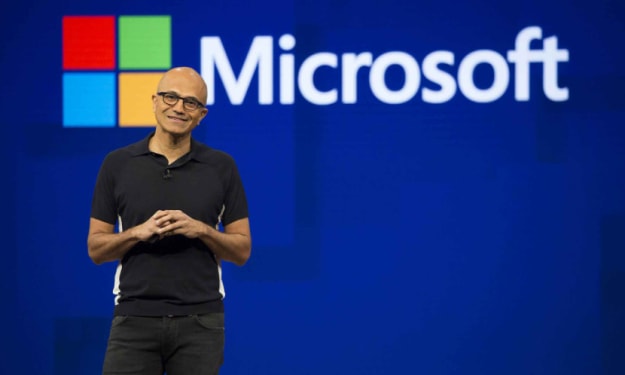Google vs. Microsoft
Who Will Win the AI Race?

Introduction
The 21st century has witnessed an unprecedented technological revolution, with Artificial Intelligence (AI) emerging as one of the most transformative technologies of our time. Companies worldwide are engaged in a fierce competition to lead the AI race, leveraging its potential to drive innovation, improve productivity, and shape the future of various industries. In this blog, we will examine the AI strategies of two tech giants, Google and Microsoft, and attempt to predict who will emerge victorious in this intense race.
The AI Landscape
Both Google and Microsoft have made significant strides in AI development. Google's commitment to AI is evident from its pioneering work in natural language processing, computer vision, and machine learning through projects like Google Brain and TensorFlow. On the other hand, Microsoft has been investing heavily in AI as well, integrating it into various products like Cortana, Azure Cognitive Services, and AI-powered solutions for businesses.
Strengths and Weaknesses
Google has a powerful AI ecosystem that encompasses various consumer-facing products like Google Search, Google Assistant, and Google Photos. The company's vast amount of data from user interactions fuels its AI algorithms, giving it a competitive edge. Additionally, Google's open-source initiatives, such as TensorFlow, have contributed to the widespread adoption of AI in various industries. However, concerns about data privacy and ethical considerations have raised questions about Google's AI practices.
Microsoft
Microsoft, known for its enterprise-focused approach, has been diligently integrating AI capabilities into its suite of products. The Azure cloud platform provides AI services and tools, making it a popular choice for businesses looking to harness AI's potential. Microsoft's acquisition of LinkedIn has also strengthened its position in the AI job market and professional networking space. However, it faces the challenge of overcoming the consumer-focused perception that Google has successfully cultivated.
AI Research and Development
Google has a reputation for pushing the boundaries of AI research and development. Its research lab, Google Brain, has been at the forefront of breakthroughs in machine learning and deep learning. The company's investments in AI startups and academic partnerships have contributed to a vibrant AI research community. Microsoft, too, has invested significantly in AI research, partnering with top institutions and organizing AI competitions like the Microsoft AI Championship. Both companies actively publish AI research papers and contribute to the advancement of the field.
AI Applications
Google's AI applications are deeply integrated into our daily lives, with Google Assistant becoming a ubiquitous virtual assistant on smartphones and smart devices. Google's AI-powered recommendations and search algorithms continue to improve user experience. However, the company's foray into AI-driven hardware products, like self-driving cars through Waymo, has been slower compared to its software advancements.
Microsoft, as mentioned earlier, focuses on enterprise AI applications. Azure Cognitive Services offer a wide range of AI capabilities, including natural language processing, computer vision, and decision-making. Microsoft's AI applications cater to businesses seeking to optimize operations, automate processes, and enhance customer experiences.
Ethical Considerations
The AI race isn't just about technical prowess; it also involves ethical responsibilities. Google and Microsoft face the challenge of ensuring the ethical use of AI, addressing bias, and protecting user privacy. Google has faced criticism over issues related to AI bias, data collection, and privacy concerns, while Microsoft has also grappled with ethical implications in areas like facial recognition technology.
Conclusion
In the battle for AI dominance, both Google and Microsoft have formidable strengths and weaknesses. Google's strong foothold in the consumer market, open-source initiatives, and pioneering research make it a frontrunner. Microsoft's focus on enterprise AI, cloud services, and acquisitions have positioned it as a major contender as well.
Ultimately, the winner of the AI race may depend on the specific domain and application. Google's consumer-focused approach may continue to shape our daily lives, while Microsoft's enterprise solutions could revolutionize business operations. Regardless of who emerges as the winner, it is clear that AI will continue to be a driving force behind technological advancements, reshaping industries, and influencing our society for years to come.
The real winners, in the end, will be humanity as AI empowers us to achieve remarkable feats and address some of the world's most pressing challenges.
About the Creator
James Robert
A entrepreneur or business owner looking to gain exposure for your business,






Comments
There are no comments for this story
Be the first to respond and start the conversation.